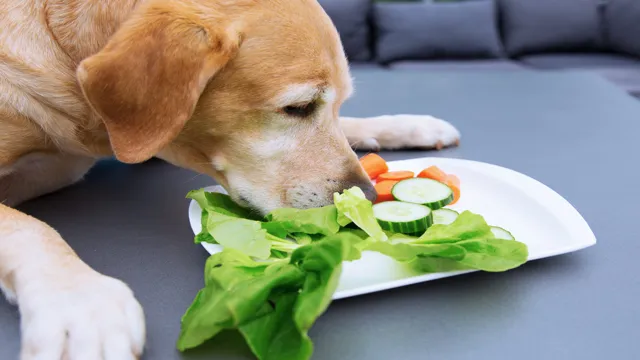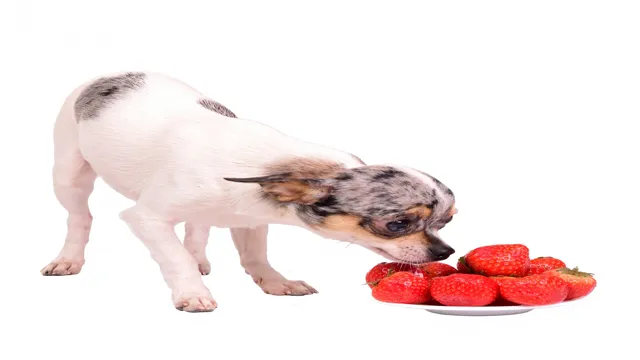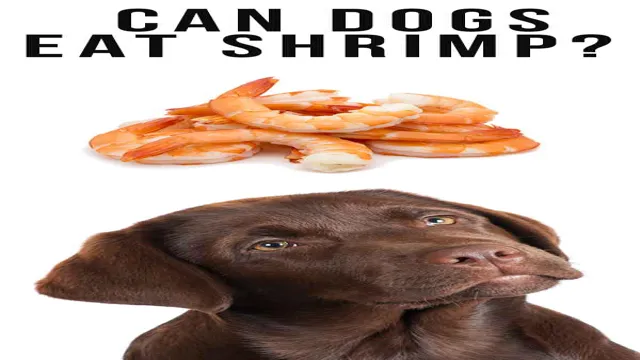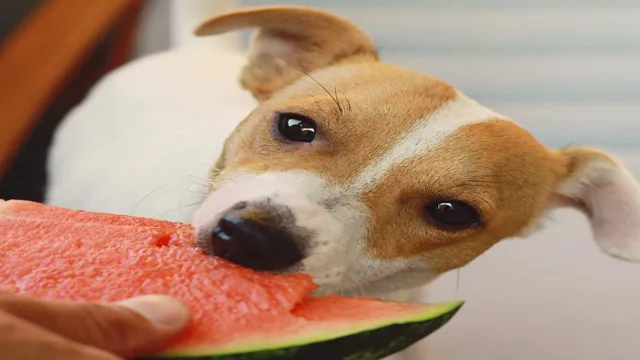Can Vegetarian Diets Be Appropriate for Dogs?

Do you have a vegetarian diet at home, but you have dogs as well? You may be wondering if your furry friends can also enjoy the same vegetarian meals. Can dogs eat vegetarian food? The good news is that it is possible for dogs to have a vegetarian diet. In this blog, we’ll discuss the benefits and risks of feeding your pet a vegetarian diet and the best vegetarian foods for dogs. Read on to learn more!
Benefits of Feeding Dogs Vegetarian Food
Are you considering a vegetarian diet for your canine companion? Many pet owners feel that for ethical reasons, their furry friends should only eat plant-based foods. But is it safe for dogs to go vegetarian? The answer is yes, dogs can eat vegetarian food, however it must be carefully balanced to ensure their dietary needs are met. Vegetarian diets can provide dogs with all the essential nutrients they need, but owners must be aware of the potential risks. First and foremost, it is important to consult with your veterinarian before making changes to your dog’s diet. This is especially important if your pup has specific health conditions or allergies.
Once you are given the green light, you can start looking into vegetarian diets for your pup. There are many benefits to feeding your dog vegetarian food. Since plant-based proteins are generally lower in saturated fats than animal proteins, vegetarian diets can help keep your pup slim and healthy. They also contain fewer calories than meat-based diets, which can be beneficial for overweight pups. Additionally, vegetarian diets can be more cost effective than diets that include animal proteins.
Vegetarian diets can also help your pup maintain a healthy coat and improved digestion. Plant-based proteins are easier to digest and provide more fiber than animal proteins. This can help keep your pup’s stools regular and their coat shiny. While vegetarian diets can be beneficial for dogs, it is important to make sure your pup gets the nutrients they need. A nutritionally balanced vegetarian diet should include a variety of plant-based proteins, carbohydrates, and fats.
It should also include vitamins, minerals, and essential fatty acids. Vegetarian diets can be a great option for pet owners who wish to provide their pup with a healthy and ethical diet. However, it is important to consult with your veterinarian before making any changes to your pup’s diet, and to ensure their diet is nutritionally balanced. With
Nutritional Benefits
If you’ve ever asked yourself, “Can dogs eat vegetarian food?” the answer is yes! While most dogs require a diet that is rich in animal proteins, there are many vegetarian-friendly foods that can provide your pup with essential vitamins, minerals, and other beneficial nutrients. Feeding a vegetarian diet to your canine companion can offer a number of health benefits, including improved digestion, increased energy levels, and reduced risk of certain diseases. Vegetarian diets are also more environmentally friendly than traditional animal-based diets, making them a great choice for animal-loving pet parents. If you’re considering a vegetarian diet for your pup, be sure to talk to your veterinarian first to ensure they get all the nourishment they need.

Environmental Benefits
Did you know that switching to a vegetarian diet for your pup can have environmental benefits? It’s true! Not only can dogs eat vegetarian food, but by choosing plant-based options for your canine companion, you are reducing the amount of resources needed to feed them. This helps reduce their carbon pawprint, so your pup can be an eco-friendly pup! Plus, the variety of vegetarian options available ensures that your pup will be getting all the nutrients they need to stay healthy.
Foods Dogs Can Eat
We all know that dogs are carnivores, but that doesn’t mean they can’t enjoy vegetarian food too. Many dog owners are now choosing to feed their pets vegetarian diets, and there are a number of foods that dogs can eat that are both healthy and tasty. Vegetables should be an important part of any dog’s diet, as they are an excellent source of vitamins, minerals, and fiber. Some of the most nutritious vegetables for dogs include carrots, broccoli, sweet potatoes, green beans, and spinach. All of these vegetables are low in calories and are a great source of nutrition for your pup.
Fruits are also a great addition to a dog’s diet, as they provide essential vitamins, minerals, and antioxidants. Some of the most popular fruits for dogs include apples, blueberries, strawberries, bananas, and watermelon. While fruits are healthy for dogs, it’s important to remember that some fruits, such as grapes and raisins, can be toxic to dogs. Legumes, such as beans, peas, and lentils, are an excellent source of plant-based protein for dogs. They are also high in fiber, which can help keep your dog’s digestive system running smoothly.
Some of the most popular legumes for dogs include black beans, kidney beans, chickpeas, and lentils. Grains, such as oatmeal and brown rice, are also healthy additions to a dog’s diet. They are high in fiber and can help keep your pup feeling full and satisfied. It’s important to choose whole grains instead of processed grains, as they are more nutritious. Finally, it is important to give your pup plenty of water.
Dogs should have access to fresh, clean water at all times to stay hydrated. So, if you’re looking for a healthy and delicious way to feed your
Whole Grains
Dogs may be known as carnivores, but they can still get a lot of nutritional benefits from eating vegetarian food! Whole grains in particular are a great option for adding more plant-based foods to your pup’s diet. Not only are they a great source of fiber, but they also provide essential vitamins and minerals like B vitamins, iron, magnesium, and selenium. Plus, whole grains can help keep your pup’s energy levels up and provide a feeling of fullness. So if you’re looking for a way to give your dog a healthy and balanced diet, adding some whole grains to their meals is a great place to start!
Legumes
Legumes are an incredibly versatile and nutritious source of food, and they can be a great addition to your canine companion’s diet! While some vegetarian foods may not be suitable for your pup, legumes are packed with essential vitamins and minerals and can provide them with a healthy and delicious alternative to meat-based meals. Plus, they’re super affordable and easy to prepare! From split peas to lentils and chickpeas, there are plenty of options for you to explore and introduce to your pup, so why not give them a chance to try something new?

Vegetables
It’s a common question among pet owners: can dogs eat vegetarian food? The answer may surprise you, but the answer is yes – in moderation. Although dogs are omnivores and need a balanced diet of both meat and vegetables, they can actually benefit from a balanced vegetarian diet. Vegetables provide essential vitamins and minerals, as well as dietary fiber, which can help to keep their digestive systems healthy. However, some vegetables can be hard for dogs to digest, so it’s important to make sure the vegetables you feed your pet are properly cooked and blended for their safety. When in doubt, consult your veterinarian for the best advice on feeding your pup a healthy, vegetarian diet.
Tips For Feeding Your Dog Vegetarian Food
When it comes to feeding your four-legged friend, it can be difficult to know what the best choice is for their health. While some people may be opposed to feeding their dogs vegetarian food, there are actually some benefits to doing so. Here are some tips for feeding your dog vegetarian food. First and foremost, it is important to make sure that your dog is getting all the nutrients they need. While there are many vegetarian foods that can provide adequate nutrition, it is important to supplement with minerals and vitamins as needed.
Look for food that specifically states that it is “complete and balanced,” as this means that it is made with the right nutrient levels for your dog. Second, consider the type of food you are feeding your dog. While some vegetarian dog food may be suitable for your pup, there are also some types that are not recommended for dogs. For example, soy-based foods can cause digestive issues, so it is best to avoid them. Additionally, some dogs may have allergies to certain ingredients, so be sure to read the labels carefully and choose foods that are free from allergens.
Third, it is important to be mindful of the ingredients in the food you are feeding your dog. Some vegetarian foods are high in carbohydrates and may not be suitable for dogs who are prone to gaining weight. Additionally, some foods may contain additives or preservatives that can be harmful, so be sure to read the labels carefully. Finally, make sure to consult with your veterinarian before making any major changes to your dog’s diet. Your vet will be able to provide you with more information and recommend the best type of food for your pup.
Feeding your dog vegetarian food can be a great way to provide them with the nutrients they need while also helping the environment. With some careful consideration of the ingredients and type of food, you can ensure that your pup is getting a healthy and balanced diet.
Check With Your Vet
Are you considering switching your pup to a vegetarian diet? Before making any drastic changes to your pup’s diet, it’s important to consult with your vet first. A veterinarian can help assess if a vegetarian diet is right for your pet and can provide tips on how to make sure your pup gets all the necessary nutrients. While some dogs may be able to do well on a vegetarian diet, others may not. It’s important to consult with your vet before making any changes to make sure your dog is getting all the nutrition they need.
Do Your Research
Can dogs eat vegetarian food? The answer to this question is complicated. While some vegetarian foods are perfectly safe for your pup, others may not be suitable for their digestive systems. Therefore, it is important to do your research before introducing any vegetarian food into your dog’s diet. Many vegetables such as carrots and green beans are safe for dogs, however, some may contain substances such as onions and garlic that can be toxic to your pup. Additionally, some nuts, such as macadamia nuts, can also be dangerous for your furry friend.
Researching which foods are appropriate for your dog is the best way to ensure that your pup stays healthy and happy.
Conclusion
No, dogs can not eat vegetarian food. While some vegetarian food is healthy and nutritious for people, it does not contain all of the essential nutrients that dogs need. Dogs are carnivores and need to eat a balanced diet of proteins, fats, and carbohydrates that are found in meat-based foods to stay healthy.”
FAQs
Can dogs eat vegetarian food?
Yes, dogs can eat some vegetarian food, such as fruits and vegetables, as long as they are cooked and served in appropriate amounts.
Is vegetarian food safe for dogs?
Yes, when prepared correctly, vegetarian food can be a safe and healthy option for dogs. However, it is important to make sure that the food is well balanced and does not contain any ingredients that are toxic to dogs.
What type of vegetarian food can dogs eat?
Dogs can eat some fruits and vegetables, such as apples, carrots, and green beans. It is important to make sure that the food is cooked and served in appropriate amounts.
Are there any vegetarian food items that are harmful to dogs?
Yes, some vegetarian food items can be harmful to dogs, such as onions, garlic, and avocados. It is important to research which foods are safe and unsafe for dogs before feeding them vegetarian food.
How much vegetarian food should I feed my dog?
The amount of vegetarian food that you should feed your dog depends on its age, size, and activity level. You should consult with your veterinarian to determine the appropriate amount of vegetarian food for your dog.
Should I consult a veterinarian before feeding my dog vegetarian food?
Yes, it is recommended to consult with a veterinarian before feeding your dog vegetarian food to ensure that the food is properly balanced and does not contain any toxic ingredients.




